







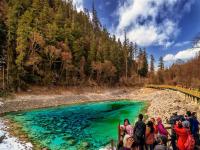

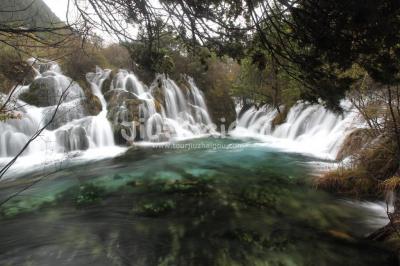
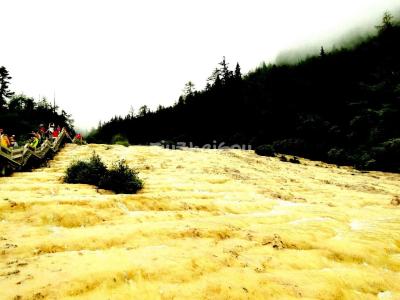
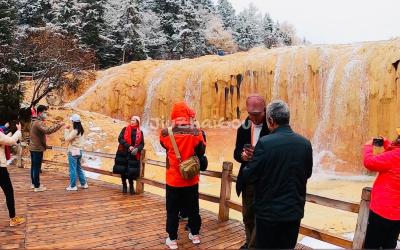
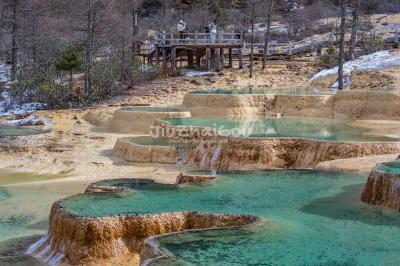
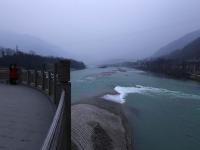

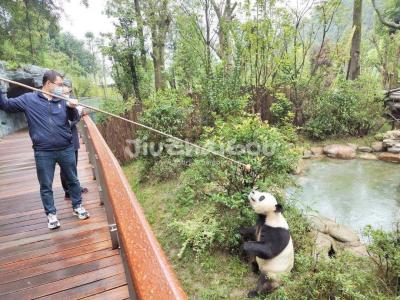
Chengdu is the provincial capital of Sichuan Province in Southwest China. It is located on the edge of the Chengdu Plain which is known as the “Country of Heaven” (Tian Fu Zhi Guo). The agriculture in Chengdu really develop well, as a result, it is also called the “Land of Milk and Honey” due to this. One thing you must do in Chengdu is visiting the Chengdu Research Base of Giant Panda Breeding.
Chengdu is famed as “the home Town of Giant Panda” which attracts millions of tourists from inland and abroad. Moreover, Chengdu has a history of more than 2,000 years with numerous historical places of interests and relics.
You can experience the history of Chengdu can go to the Jinsha Site Museum, Sanxingdui Museum, Wuhou Memorial Temple and Wenshu Temple, or you can stroll in the Jinli Ancient Street and the Wide and Narrow Alley to relax yourself. Additionally, you’d better not miss the Sichuan Cuisine.
Jiuzhaigou County, once named Nanping County, is a county of Sichuan Province, China. In 1998, it is renamed Jiuzhaigou, because the county consists of nine villages in a valley in Sichuan Province and it is under the administration of the Ngawa Tibetan and Qiang Autonomous Prefecture.
This county is mainly famous for the Jiuzhaigou Valley, or the Jiuzhaigou Valley Scenic and Historic Interest Area which is known for its many multi-level waterfalls, colorful lakes, forests, and snow-capped peaks.
It was recognized as a UNESCO World Heritage Site in 1992 and was awarded the status of UNESCO Man and Biosphere Reserve in 1997.
The valley is a paradise for the wildlife. There are 27 protected rare and endangered species like the giant panda, Sichuan golden monkey, and more than 140 species birds are inhabitant in this valley.
Dujiangyan is a county-level city under the jurisdiction of Chengdu, the capital city of Sichuan province. It is 48 km southeast of Chengdu. In the Neolithic Age, it was a region where ancient Shu people's ancestors lived and was one of the birthplaces of Ancient Shu State.
Being an international tourist city, Dujiangyan has 2 world heritage sites. One is Dujiangyan Irrigation System, which is an irrigation infrastructure built in 256 BC during the Warring States period of China by the State of Qin, the other is Mount Qingcheng, which is the birthplace of Chinese Taoism.
Some other famous attractions of Dujiangyan include: Guan Xian Ancient Town, Fulong Temple, Erwang Temple (Two Kings Temple), Lingyan Temple, Puzhao Temple, Jade Maiden Peak, Cuiyue Lake, Chaxi Valley, Lidui Park, Yulei Mountain Park, Anlan Cable Bridge, Insect Museum of West China, and Longxi-Hongkou National Natural Reserve Area etc.